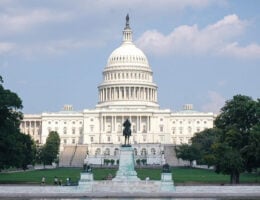The new DOJ FCPA enforcement policy emphasizes US national security and business interests, moving away from solely prosecuting bribery of foreign officials. The focus will be on bribes involving Transnational Criminal Organizations (TCOs), cartels, and those impacting US competitiveness or national security. Routine, locally accepted business practices are deprioritized. The DOJ will exercise discretion to determine if conduct genuinely impacts US interests, leaving other cases to the SEC or foreign regulators. This creates a more nuanced and unpredictable enforcement environment, with clarity expected only as enforcement patterns emerge.
This session examined recent geopolitical and regulatory developments in anti-bribery and corruption (ABC) enforcement across the US and UK.
On 12 May 2025 the newly issued Criminal Division White-Collar Enforcement Plan, the Head of the US Department of Justice (DOJ)’s Criminal Division, Matthew R. Galeotti, set out the Department’s priorities for corporate criminal enforcement under the new Administration and issued a number of updated policy documents.
These changes affect the Criminal Division’s Corporate Enforcement and Voluntary Self-Disclosure Policy, its policy on the Selection of Monitors (memorialized in the Memorandum on Selection of Monitors in Criminal Division Matters, and the Whistleblower Awards Pilot Program.
Our popular Annual Compliance Conference, which attracts senior in-house legal and compliance professionals every year from across the world, will be held virtually from 3 to 12 June 2025.
The conference will provide you with valuable insights from our international trade, compliance and investigations, regulatory and antitrust lawyers. We will delve into critical topics shaping the future of global businesses such as sanctions, export controls, customs and tariffs, national security laws, antitrust, product regulation, ESG and related enforcement trends.
On February 10, 2025, President Donald Trump signed an Executive Order (“Order”) directing a 6-month moratorium on the enforcement of the Foreign Corrupt Practices Act (FCPA), while the Attorney General revises Department of Justice (DOJ) policies and guidelines governing FCPA enforcement. The Order instructs that these changes be made in the interest of promoting US companies’ ability to compete in foreign markets. While the Order introduces uncertainty for the future of FCPA enforcement, companies are advised to stay the course on compliance and exercise caution when considering any shifts in compliance practices and resourcing in the near term.
A Legal Tightrope for Government Contractors In brief President Trump’s Executive Order 14173 calls for the elimination of what it characterizes as “illegal” DEI programs in the federal government. In addition, by making express references to the False Claims Act, the order provides another avenue for qui tam relators to…
A recent memorandum from Attorney General Pam Bondi signals a potential shift in the Department of Justice’s FCPA enforcement priorities. According to the memorandum, FCPA enforcement should prioritize foreign bribery linked to Cartels and Transnational Criminal Organizations (TCOs), potentially altering the landscape of white-collar corporate enforcement. While traditional FCPA cases will likely continue, the new directive grants local US Attorneys’ Offices greater latitude in conducting FCPA investigations touching on Cartels and TCOs.
Having not secured a deferred prosecution agreement in respect of U.K. Bribery Act offences since 2021 and having been rocked by a series of shortcomings regarding its investigation and prosecution of cases, the SFO has arguably been at its lowest ebb.
View the recorded sessions from our 2023 Virtual Global Trade Conference where international trade compliance lawyers from around the world reviewed major developments impacting international trade.
Baker McKenzie’s Government Procurement Update resource center gives you the latest guidance, trends and enforcement actions related to government procurement (both US government contracting and international financing institutions), including suspension and debarment, bid protests, and False Claims Act defense. Calling upon our deep bench of more than 4,000 lawyers and legal professionals worldwide, we will occasionally feature guest practitioners to write about related topics in the criminal, civil, and administrative context. Readers can expect to find practical guidance and tips for compliance with public procurement policies as well as best practices for managing government inquiries and litigation.








